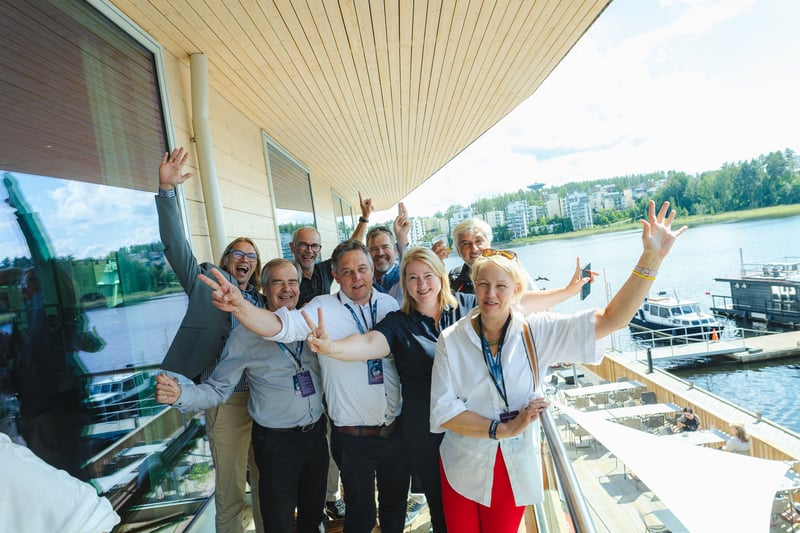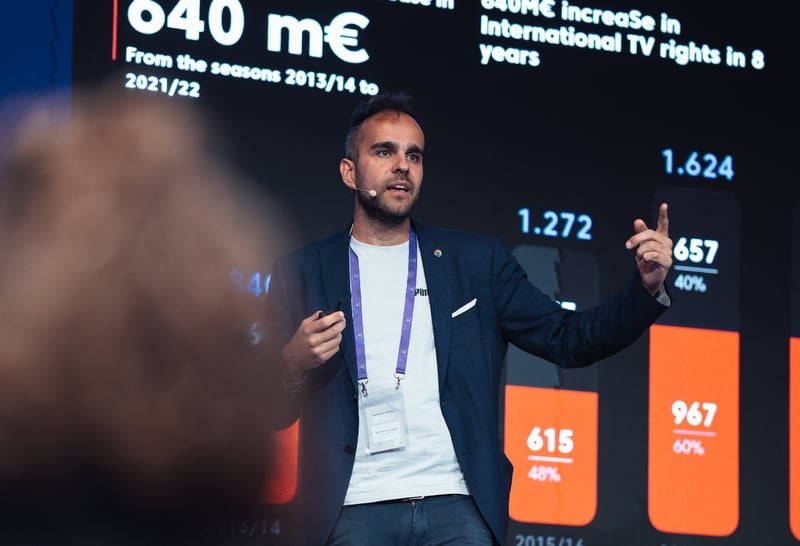The Leader360 program's training day in September addressed the management of intrinsic motivation: how work autonomy, personal ability, creating a connection and receiving acceptance, and the experience of contribution are realized both on a personal and organizational level.
– Often, in practice, taking care that existing experiences of intrinsic motivation aren’t destroyed, Jarenko laughs.
In managing intrinsic motivation, the organization's processes are analyzed, and points found that counteract people's experience o
f autonomy or connection.
– When organizations are constantly being developed and built, it is important to figure out whether the changes strengthen or weaken the experience of intrinsic motivation, Jarenko points out.
– If, for example, a system seems to place a burden on people, it is important to admit the fact and start thinking about how to solve the problem. Even if the system cannot be changed, just expressing the problem in words supports the experiences of autonomy and connection.
Stories and structures often slow down change
In the light of research, the importance of intrinsic motivation has been understood for a long time but change at the organizational level has been slow. Jarenko sees two reasons for this.
– Even though many people actually experience enthusiasm and happiness in their work, the usual way to relate to work and talk about it is still bemoaning terminology. It is useful to become aware of how you personally talk about your work. A good exercise would be to try to talk at home about how cool the things are that you work on and how great today’s meeting was, she encourages.
Another reason relates to established organizational structures and management systems.
– In many companies, profit-making pressures are heavy. It feels safer to maintain a model that is known to work, because change always includes a risk of failure, Jarenko says.
"Realistic" and flourishing cultures produce different results
The good-enough, "realistic" management of intrinsic motivation builds on familiar theses: people's strengths are recognized, praise is given, the management model is based on coaching and dialogue instead of commands, job descriptions are customized, and attention is paid to the tone of talking about and doing things.
– Even with these changes, a lot of good will be achieved, Jarenko promises.
However, she wants to encourage managers to be more ambitious. They should enhance the good-enough with the more radical idea that people shouldn’t just go to work, but flourish in their work.
– I like to think that we are moving towards a working life where people don't work just because they must, but because they are able to use their strengths and build their jobs in a way that supports their own growth and development and their ability to serve. I want to think that we can build a work culture where human flourishing is at the center, Jarenko envisions.
In a work community based on human flourishing, the results speak for themselves.
– According to studies, they show a significant improvement over traditional organizations in work productivity, the desire to learn and the ability to innovate, as well as commitment to the employer, Jarenko emphasizes.
Shape the work around your own strengths and passions
The journey to human flourishing is not reserved only for employees. Jarenko believes that the importance of personality in management roles will only become more prominent.
– What we consider good leadership is changing. Twenty-somethings are hearing from more and more leaders who are competent and courageous through their own personality and don't constantly think about what others think of them.
However, this point cannot be reached with traditional methods. First, it requires brutal honesty from the leader. Recognizing and admitting one's own weaknesses is often difficult.
– Organizational culture does not necessarily guide us toward what would be best for us. The leader must dare to look in the mirror, admit the situation and search for something new in their life.
– Effectiveness comes from forgetting what the business gurus say and shaping the work around your own strengths and passions, she says encouragingly.
Internal motivation is key to the organization's ability to innovate
The effect of intrinsic motivation on the ability of individuals and organizations to develop and create something new is significant. Jarenko believes that learning processes will be renewed in the next few years.
– In traditional organizations, HR, product, and innovation development processes follow their own separate paths. HR thinks about what kind of competence the strategy requires and where added training is needed. A product development director has their own processes for developing new products and services, she describes.
In organizations working in a new way, an increasingly large part of learning and development takes place as part of everyday work.
– The work is solving problems, learning, and developing new things, and at the same time developing the organization's services. The role of intrinsic motivation is central to the growth and development of the organization, Jarenko notes.
According to a Work Institute study published in 2018, the departure of 72% of those who took part in the study and changed jobs could have been prevented if the employer had offered people better opportunities to learn things they were interested in – in other words, to develop in their profession.
– The battle for good employees is already fierce and is expanding. Opportunities for development, learning, and taking care of their personal market value are crucial parts of employees' intrinsic work motivation.
– Internal motivation is a must-have these days, and management must understand its operating mechanisms if they want to employ the best talent – and keep it.
Karoliina Jarenko is a business coach specializing in management and organizational renewal. Read more: https://www.karoliinajarenko.fi/english



